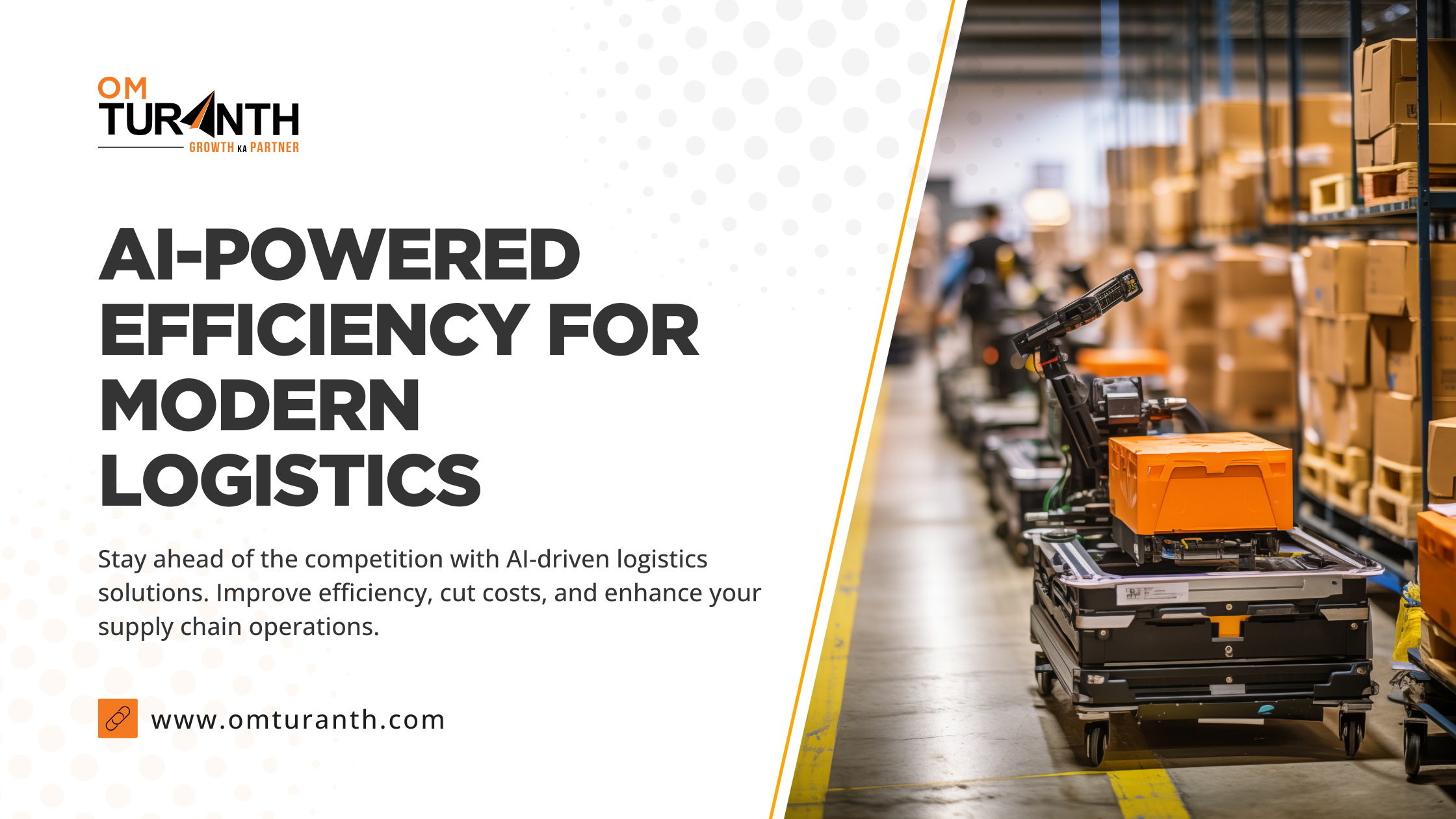The Role of AI in Modern Supply Chains

Introduction
The logistics and supply chain industry is experiencing a transformation. With Artificial Intelligence (AI) leading the way, companies are reimagining how they operate, improving efficiency and cutting costs. AI is shaping modern supply chains by streamlining operations, enabling predictive analytics, and making supply chains more agile and responsive to market demands.
How AI Enhances Supply Chain Efficiency
1. Predictive Analytics for Demand Forecasting
AI allows businesses to make informed decisions by analyzing vast amounts of data in real time. Through predictive analytics, companies can forecast demand more accurately, reducing overstocking or understocking issues. This ability to anticipate demand ensures timely deliveries and a more streamlined supply chain process. For example, AI-based demand forecasting solutions can help navigate seasonal demands and prepare for market fluctuations.
2. Enhanced Demand Forecasting
AI plays a crucial role in predicting demand patterns by analyzing historical data, seasonal trends, and external factors like market conditions. This allows businesses to better forecast demand, optimizing production schedules and supply chain flows. Accurate demand forecasting helps reduce overproduction and shortages, leading to efficient resource allocation. Companies like Om Turanth Express leverage AI to adapt to e-commerce growth, ensuring they stay ahead in an increasingly competitive landscape.
3. Intelligent Route Optimization
AI-powered route optimization tools analyze traffic patterns, weather conditions, and other factors to select the fastest, most efficient delivery routes. This enhances last-mile delivery and reduces fuel consumption. AI’s integration with logistics platforms also enables businesses to handle bulk shipments efficiently, making the entire delivery process smoother.
4. Risk Management and Fraud Detection
Supply chains are susceptible to risks such as fraud, delays, and disruptions. AI can detect unusual patterns, providing early warnings of potential risks. By analyzing historical data, AI helps businesses design more resilient strategies, reducing the impact of disruptions. AI-based risk management is becoming increasingly crucial in today's unpredictable environment.
Real-World Applications of AI in Logistics
AI is already revolutionizing various sectors, including industrial equipment logistics and e-commerce, where AI-powered tools optimize supply chains, improve efficiency, and boost reliability. For example, AI is used to enhance route optimization, predict demand fluctuations, and streamline operations, leading to faster and more accurate deliveries.
Moreover, AI plays a significant role in reducing carbon footprints by optimizing routes and minimizing energy consumption, contributing to more sustainable and eco-friendly logistics practices.
The Future of AI in Supply Chains
AI is rapidly advancing, and its role in supply chains is only expected to grow. As AI tools evolve, they will further enhance logistics operations by improving last-mile delivery, increasing visibility across the supply chain, and enabling real-time tracking. AI will also play a critical role in supply chain resilience, ensuring businesses can adapt swiftly to market changes and disruptions.
Conclusion
The integration of AI into modern supply chains is revolutionizing the logistics industry. From demand forecasting to risk management and route optimization, AI is providing companies with the tools to improve efficiency, reduce costs, and meet customer expectations. As the technology continues to evolve, its impact on the future of logistics will only deepen.